Evidence that Read It Again! works
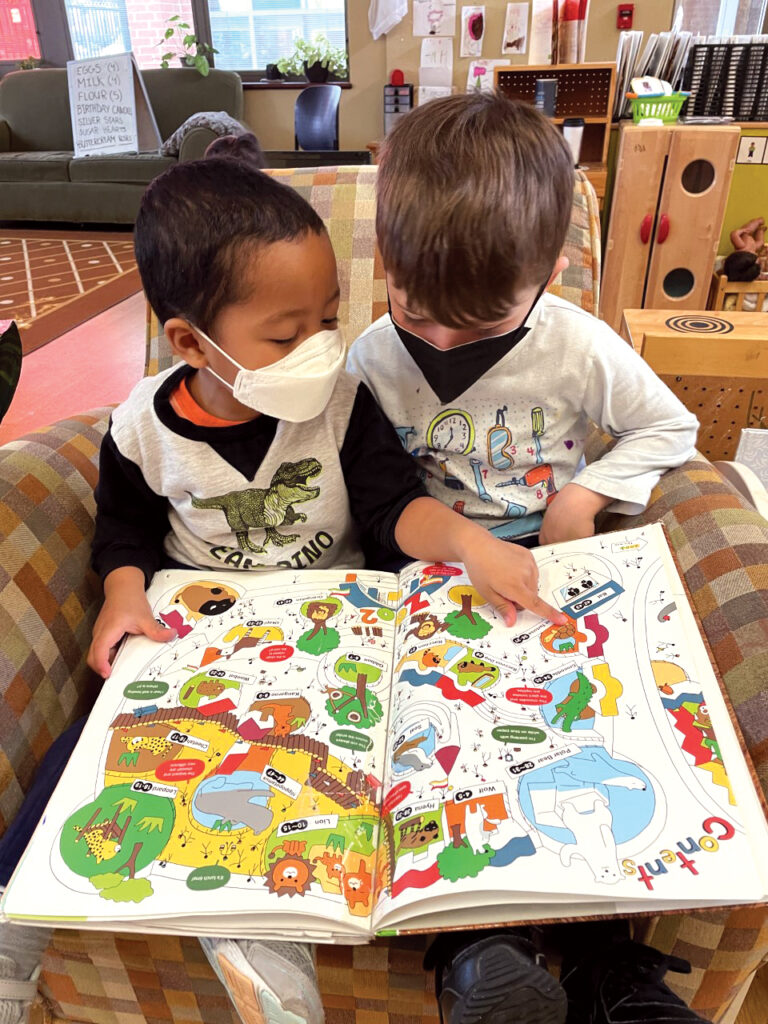
Read It Again! has been in development since the mid 2000’s, allowing ample time to develop, refine, and research the program. Developed jointly by researchers and practitioners – including teachers, teaching assistants, speech language pathologists, and administrators – Read It Again! is a systematic and easy-to-deliver language and literacy supplement that works.
Several rigorous experimental studies have been conducted over the last decade to test the impact of the Read It Again! curriculum supplement in early childcare settings.
Evidence indicates that children who receive Read It Again! show significant improvements in language and literacy skills essential to entering school prepared for reading success.

Read It Again! boosts literacy skills in rural Appalachian pre-k classrooms
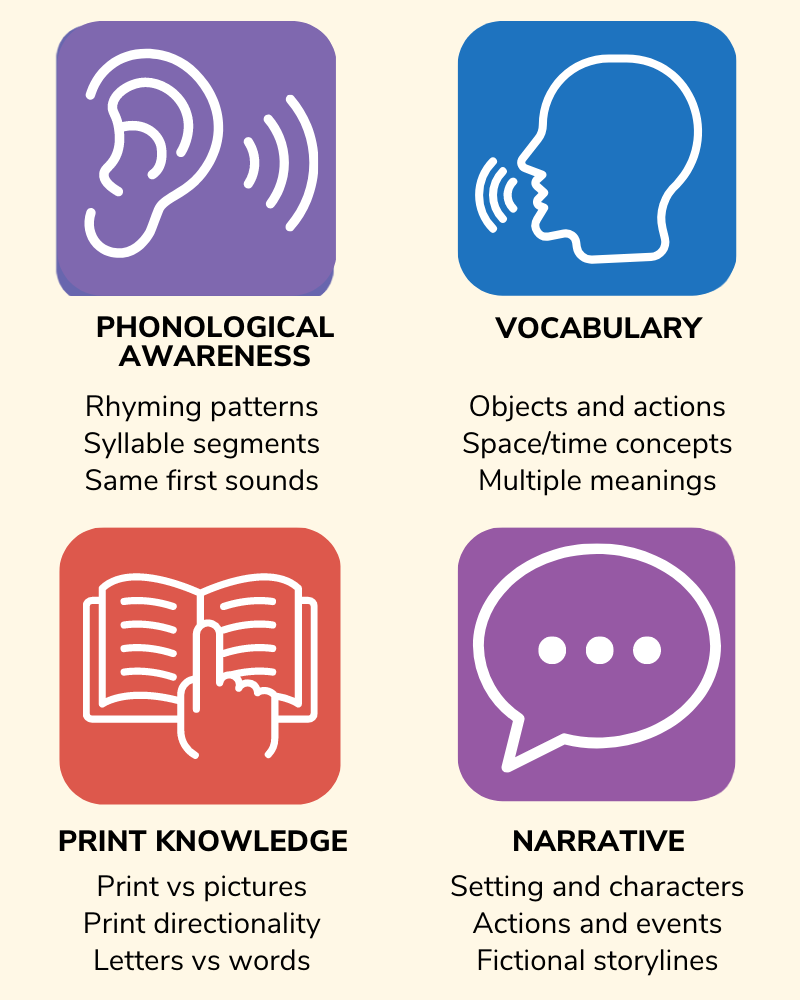
In rural Appalachia, a research study led by Andrew Mashburn, Laura Justice, and collaborators (2015) measured the effects of Read It Again! on children’s early literacy skills in 104 pre-kindergarten (pre-K) classrooms. The study focused on Read It Again!’s impact among children considered to be at-risk for future academic challenges due to socio-economic disadvantages.
The participating teachers were assigned to deliver a 30-week period of Read It Again! instruction or to deliver “business-as-usual” curricula. The results showed strong positive effects of the program on literacy abilities, such as children’s understanding of print concepts and alphabet knowledge. This means that the children who received the Read It Again! lessons were better able to, for example, connect written words to spoken words (print concepts) and identify the names of upper- and lower-case letters (alphabet knowledge).
Both print concepts and alphabet knowledge fall under the literacy umbrella of “print knowledge.” Print knowledge is one of the key learning domains of the Read It Again! curriculum supplement.
Read more about the kindergarten readiness of children in the Appalachian study.

The more SPELL, the better: The frequency of SPELL lessons predicts increases in children’s literacy skills in Denmark
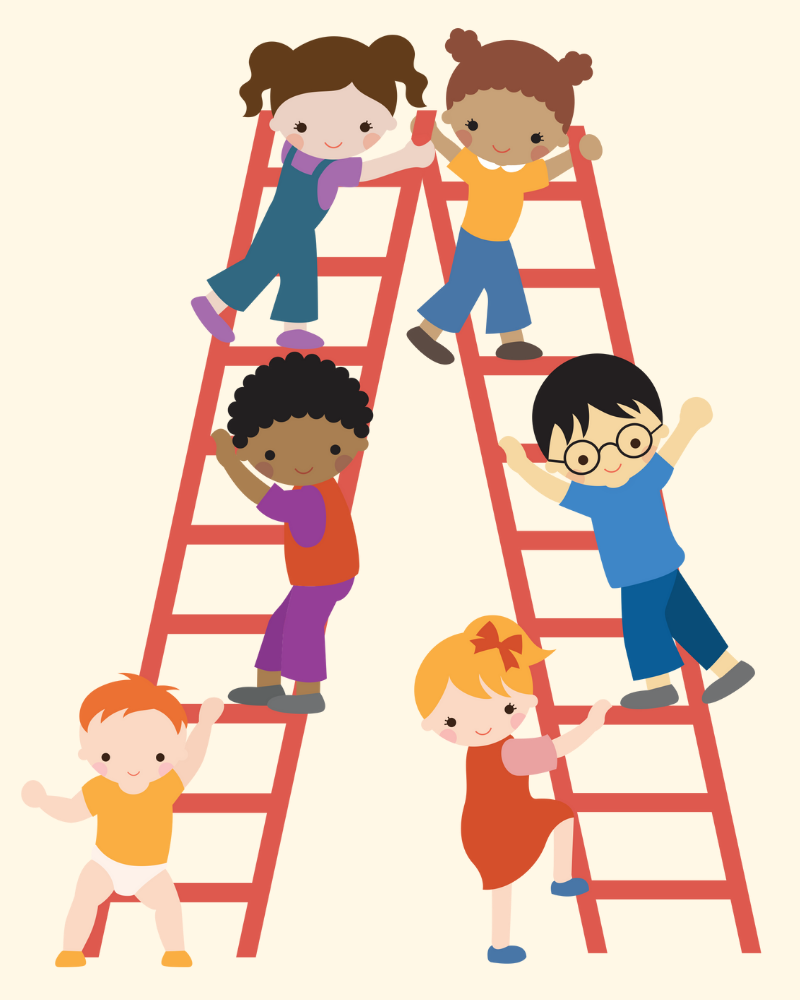
In Denmark, Dorthe Bleses, Laura Justice, Philip S. Dale, Shayne Piasta and collaborators (2018) conducted a randomized control trial (RCT) utilizing their version of Read It Again!, called SPELL. RCTs are considered the “gold standard” of experimental research. In this RCT study, one group of students received SPELL instruction but another group of students with similar characteristics did not receive SPELL instruction. Comparing the development of literacy skills between the two groups of children helps to determine if the program is working.
Almost 7,000 children ages 3 to 6 were enrolled in the study across 144 child care contexts in Denmark. The findings indicated a significant impact of SPELL on pre-literacy skills, such as print knowledge and phonological awareness. The teachers were advised to deliver two SPELL lessons per week over a 20-week period. Researchers found that the more lessons that were delivered, the more successful the program.
The findings also support how differentiated instruction can meet the needs of all children. Improvements to literacy outcomes emerged in this study, regardless of children’s socioeconomic background or native language. SPELL and Read It Again! equips educators with tools to individualize – or differentiate – implementation of lessons in a way that optimizes outcomes for children with variable sets of abilities. One of these tools is the “Learners’ Ladder”. The Learners’ Ladder offers specific practices to scaffold performance and engagement on a given lesson to help all children reach independence in each of the learning domains.
A follow-up study in Denmark (3 to 6 years after the original implementation of SPELL) found that the program had lasting effects on reading achievements for some children. Read more about the follow-up study here.
What other evidence shows that Read It Again! ingredients work?
Increasing young children’s attention to print
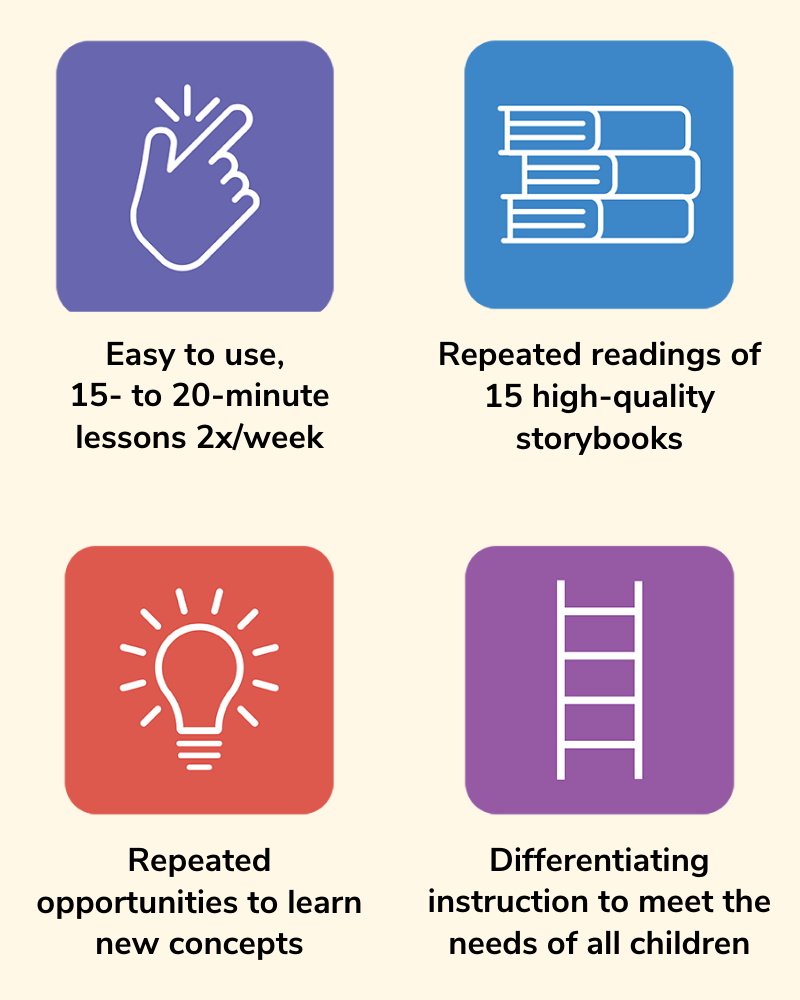
A foundational component (i.e., Active Ingredients) of Read It Again! instruction is the increase in children’s direct contact with storybooks and repeated opportunities to interact with print.
A longitudinal RCT led by Shayne Piasta, Laura Justice, and collaborators (2012) focused on encouraging teachers’ references to print. The results revealed that weekly shared-book readings during which teachers verbally (e.g., “Let’s point to each word as I read it. Okay?”) and nonverbally referenced print boosted 4-year-olds’ literacy achievements, such as reading, spelling, and comprehension. The benefits of this type of instruction on children’s literacy skills held for up to two years after the conclusion of the experiment.
References
Bleses, D., Dale, P. S., Justice, L., Højen, A., Vind, B. D., & Jiang, H. (2021). Sustained effects of an early childhood language and literacy intervention through second grade: Longitudinal findings of the SPELL trial in Denmark. PloS One, 16(10), e0258287. doi: 10.1371/journal.pone.0258287
Bleses, D., Højen, A., Justice, L.M., Dale, P.S., Dybdal, L., Piasta, S.B., Markussen-Brown, J., Clausen, M. & Haghish, E.F. (2018), The effectiveness of a large-scale language and preliteracy intervention: The SPELL randomized controlled trial in Denmark. Child Development, 89, e342-e363. doi: 10.1111/cdev.12859
Justice, L.M., Jiang, H., Khan, K.S., & Dynia, J.M. (2017). Kindergarten readiness profiles of rural, Appalachian children from low-income households. Journal of Applied Developmental Psychology, 50, 1-14. doi: 10.1016/j.appdev.2017.02.004
Mashburn, A., Justice, L. M., McGinty, A., & Slocum, L. (2016). The impacts of a scalable intervention on the language and literacy development of rural pre-kindergartners. Applied Developmental Science, 20(1), 61-78. doi: 10.1080/10888691.2015.1051622
Piasta, S. B., Justice, L. M., McGinty, A. S., & Kaderavek, J. N. (2012). Increasing young children’s contact with print during shared reading: Longitudinal effects on literacy achievement. Child Development, 83(3), 810–820. doi: 10.1111/j.1467-8624.2012.01754.x
